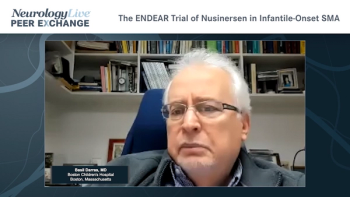
Basil Darras, MD reviews data from the ENDEAR trial of nusinersen in infantile SMA and discusses the agent’s safety and efficacy in patients of differing age groups as studied in other trials.

Basil Darras, MD reviews data from the ENDEAR trial of nusinersen in infantile SMA and discusses the agent’s safety and efficacy in patients of differing age groups as studied in other trials.
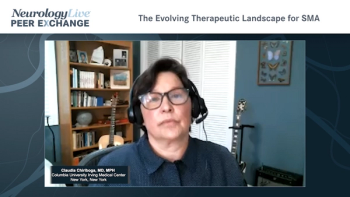
Carolina Tesi Rocha, MD examines the recent shift to disease-modifying treatment in SMA, and the panel reviews factors to consider when tailoring therapy to individual patients.

The associate professor of neurology at Columbia University and medical consultant and care center director, Muscular Dystrophy Association, discusses the impact that the Ice Bucket Challenge and ALS Awareness Month have had on the ALS treatment landscape.

Kristen Krysko, MD, and Robert Fox, MD, look to the future of multiple sclerosis management.
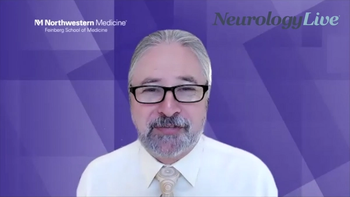
The vice chair for research at the Northwestern University Feinberg School of Medicine discussed the Mobile Toolbox Battery that his team developed.
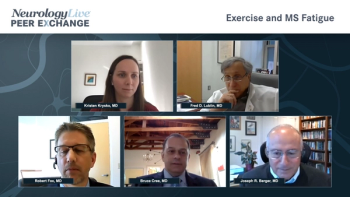
Considerations regarding the role of exercise and combatting fatigue when treating patients with multiple sclerosis.

The director of the Center for Neurological Restoration at Cleveland Clinic spoke to how identifying care gaps in Parkinson disease patients is not a niche issue, but part of a bigger problem.

The neurologist at University of Utah discussed the potential of using teleneurology to diagnose neurological conditions.

Leaders in neurology discuss the development of infusion formulations of apomorphine and levodopa/carbidopa as well as oral agents with novel mechanisms of extended-release delivery.

Laxman Bahroo, DO and Mindy K. Bixby, DO provide insight into factors to consider for patients with challenging off time including surgical and device-assisted therapeutic options.

Current hurdles faced by neurologists when prescribing therapy to treat migraine and advice to help other healthcare professionals as well as patients navigate insurance and access issues.

A patient advocate, Jill Dehlin, RN, explains why patients with migraine should connect with other patients via patient support programs and take a proactive role in managing their condition.

The associate professor of Neurology at the Cleveland Clinic Lerner College of Medicine of Case Western Reserve University discussed the findings of his presentation at AAN 2021.

The director at AbbVie highlighted where atogepant stands among the increasing treatment landscape of anti-calcitonin gene-related peptide options within the migraine treatment landscape.

Expert neurologists discuss the importance of a multidisciplinary approach to the management of symptoms for palliative care in amyotrophic lateral sclerosis (ALS).

A panel of key opinion leaders provides insight into how COVID-19 has continued to impact the diagnosis and management of patients with amyotrophic lateral sclerosis (ALS).

Tanuja Chitnis, MD and Lauren B. Krupp, MD give insight into the future of pediatric multiple sclerosis by discussing unmet needs and advice for community neurologists.

The staff neurologist at the Mellen Center for Multiple Sclerosis Treatment and Research at Cleveland Clinic spoke to a study using the digital Manual Dexterity Test.

The director of the sleep disorders center at Cleveland Clinic discussed her investigations into low-sodium oxybate presented at AAN 2021.
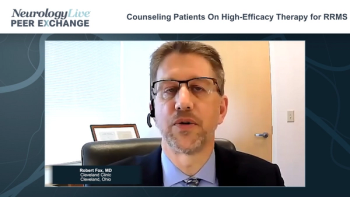
Robert Fox, MD, of the Cleveland Clinic, comments on the advantage of starting treatment with a high-efficacy therapy for relapsing-remitting multiple sclerosis and explains his approach to counseling patients when selecting treatment.
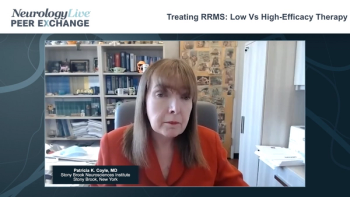
Dr Patricia K. Coyle, of the Stony Brook Neurosciences Institute, comments on her approach to selecting first-line therapy to treat relapsing-remitting multiple sclerosis, explaining how she selects between a lower-risk or high-efficacy therapy.
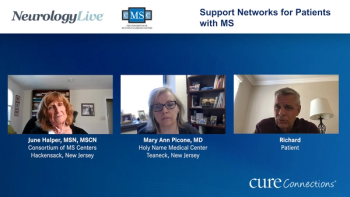
The importance of utilizing support from family and friends when managing multiple sclerosis.
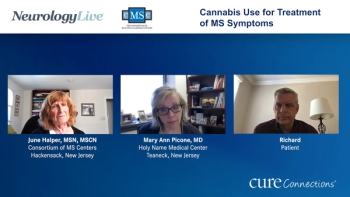
Experience with cannabis use for treatment of pain, spasms, and anxiety due to multiple sclerosis is shared by Dr Picone and her patient Richard.
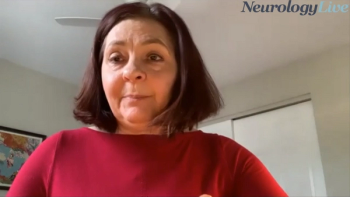
The director of research at St. Luke’s Sleep Medicine and Research Center detailed the reasons for residual excessive daytime sleepiness and the lack of literature on the topic.

The dean at the University of Exeter Medical School discussed ongoing studies of pimavanserin and his thoughts on the FDA’s actions related to the agent.
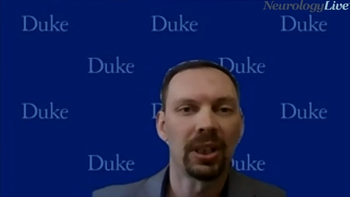
The associate professor of neurology and neurologist at Duke University provided insight on the unique mechanism of nipocalimab and its effect on patients with myasthenia gravis.

Episode 10 of the AUPN Leadership Minute features Mud M Alvi, MD, of West Virginia University and Robert C. Byrd Health; and Albert L. Wright, Jr., the president and CEO of West Virginia University Health System. [WATCH TIME: 4 minutes]
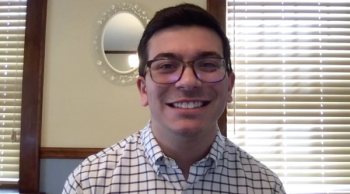
Neurology News Network for the week ending May 1, 2021.
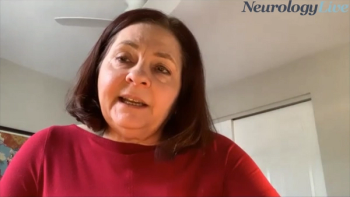
The director of research at St. Luke’s Sleep Medicine and Research Center discussed the motivation behind her study assessing solriamfetol in patient’s adherent and nonadherent to primary OSA therapy.
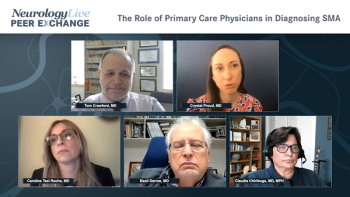
Key opinion leaders in neurology comment on the importance of awareness and urgency in the primary care setting to diagnose spinal muscular atrophy and refer the patient to a specialist.